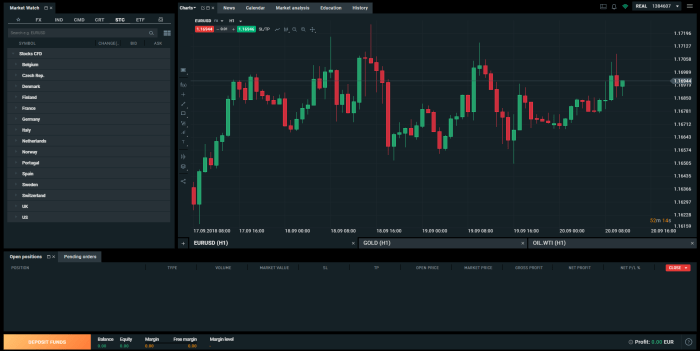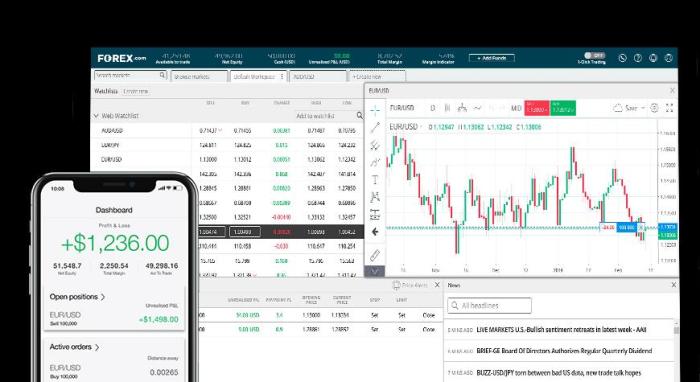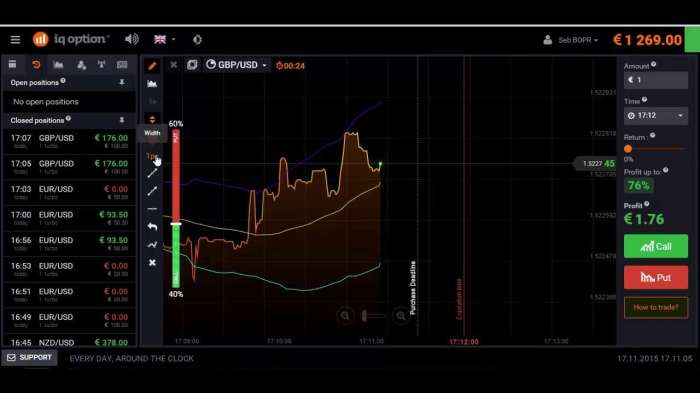
Taxation on forex trading can feel like navigating a maze blindfolded, especially with the global reach of the market. This isn’t just about knowing your profit; it’s about understanding the complex web of international tax laws, varying regulations across countries, and how your specific trading strategy impacts your tax liability. From scalping to swing trading, the rules shift, and ignoring them can lead to hefty penalties. Let’s unravel this intricate puzzle together.
This guide dives deep into the tax implications of forex trading, breaking down the complexities into digestible chunks. We’ll explore how different countries tax forex profits and losses, examine the tax treatment of various trading strategies, and provide essential tips for accurate record-keeping and reporting. We’ll also look at the role of brokers, the impact of leverage, and compare forex taxation with the increasingly popular world of cryptocurrency trading. Buckle up, because this journey into the world of forex tax is about to get real.
Taxation on Forex Trading Globally

Navigating the world of forex trading involves more than just charting price movements and predicting market trends. Understanding the tax implications, which vary significantly across jurisdictions, is crucial for both individual traders and businesses operating on a global scale. Failure to comply with these regulations can lead to hefty penalties and legal complications. This section delves into the complexities of global forex taxation, highlighting key differences and challenges faced by traders worldwide.
Tax Treatment Comparison: USA, UK, and Singapore
The tax treatment of forex trading profits differs considerably across countries. Understanding these differences is vital for traders operating internationally or holding assets in multiple jurisdictions. The following table summarizes the key aspects of forex taxation in the USA, UK, and Singapore. Note that this is a simplified overview, and specific circumstances may require professional tax advice.
| Country | Tax Rate | Taxable Events | Reporting Requirements |
|---|---|---|---|
| USA | Depends on individual income bracket; taxed as ordinary income or capital gains depending on holding period. | Profits from forex trading are considered taxable income. | Traders must report forex trading income and losses on Schedule C (Form 1040) or Schedule D (Form 1040), depending on holding period. Record-keeping is crucial for substantiating trades. |
| UK | Income tax rates vary depending on the trader’s income bracket. Capital Gains Tax may apply if profits are considered capital gains. | Profits from forex trading are generally considered income, unless they qualify as capital gains under specific circumstances. | Traders must report their forex trading profits on their Self Assessment tax return. Detailed records of transactions are necessary. |
| Singapore | Tax rates vary depending on the trader’s income bracket. No capital gains tax on disposal of shares. | Profits from forex trading are generally considered income and taxed accordingly. | Traders need to declare their forex trading income on their tax return. Accurate record-keeping is essential. |
Implications of Different Tax Jurisdictions for International Forex Traders
International forex traders face the added complexity of navigating multiple tax jurisdictions. Profits earned might be taxable in the country of residence, as well as potentially in the country where the broker is located or where the transactions were executed. This can lead to double taxation, unless specific tax treaties exist between the relevant countries to mitigate this issue. Furthermore, understanding the different reporting requirements and deadlines across jurisdictions is essential to avoid penalties. For example, a trader residing in the US but using a UK-based broker will need to understand and comply with both countries’ tax regulations.
Challenges in Complying with Varying Global Tax Regulations
Compliance with varying global tax regulations poses significant challenges. The sheer volume of transactions, coupled with complex tax laws and reporting requirements, can make it difficult to maintain accurate records and ensure timely filing. Different countries may use different accounting standards and reporting methods, adding to the complexity. Furthermore, the ever-evolving nature of tax laws requires constant vigilance and updates to ensure compliance. For businesses involved in forex trading, the complexities are magnified, requiring specialized accounting and tax expertise to manage international tax obligations effectively. This necessitates significant investment in compliance resources and expertise.
Tax Implications of Different Forex Trading Strategies
Navigating the tax landscape of forex trading can feel like navigating a maze, especially when different trading styles introduce varying tax implications. Understanding how your chosen strategy impacts your tax liability is crucial for responsible trading and minimizing your tax burden. This section delves into the tax implications of scalping, day trading, and swing trading, offering hypothetical scenarios and common tax-saving strategies.
Tax Implications of Scalping in Forex
Scalping, characterized by rapid entry and exit from trades within a short timeframe, often within the same day, presents unique tax challenges. Profits from scalping are generally considered short-term capital gains, taxed at your ordinary income tax rate. This means your profits are taxed at the same rate as your salary or wages, which can be significantly higher than the long-term capital gains tax rate.
Hypothetical Scenario: Let’s say a trader, Alex, executes 100 scalping trades in a single day, generating a net profit of $5,000. This entire amount is considered short-term capital gains and will be taxed at Alex’s ordinary income tax rate. If Alex’s ordinary income tax bracket is 25%, his tax liability on this profit will be $1,250 ($5,000 x 0.25).
Notice forex trading how to read charts for recommendations and other broad suggestions.
- Step 1: Calculate total net profit from scalping activities.
- Step 2: Identify the applicable ordinary income tax rate based on the trader’s overall income.
- Step 3: Multiply the net profit by the ordinary income tax rate to determine the tax liability.
Tax Implications of Day Trading in Forex
Day trading, while similar to scalping in its intraday focus, often involves holding positions for a longer period within the same day. The tax treatment remains largely the same; profits are typically classified as short-term capital gains, taxed at the ordinary income tax rate. However, the volume of trades and potential profits can significantly increase the tax liability.
Hypothetical Scenario: Consider Maria, a day trader who made 20 trades over a month, resulting in a net profit of $10,000. Like scalping, these profits are considered short-term capital gains, subject to Maria’s ordinary income tax rate. If her tax rate is 30%, her tax liability would be $3,000 ($10,000 x 0.30).
You also will receive the benefits of visiting forex trading api today.
- Step 1: Calculate the total net profit from all day trades within the tax year.
- Step 2: Determine the applicable ordinary income tax rate.
- Step 3: Calculate the tax liability by multiplying the net profit by the ordinary income tax rate.
Tax Implications of Swing Trading in Forex
Swing trading, involving holding positions for several days or weeks, offers a different tax perspective. Profits are typically considered short-term capital gains if held for less than one year and long-term capital gains if held for more than one year. Long-term capital gains rates are generally lower than ordinary income tax rates, potentially resulting in significant tax savings.
Hypothetical Scenario: David, a swing trader, holds a forex position for three months, realizing a profit of $15,000. Since the position was held for more than one year, the profit is classified as a long-term capital gain. If David’s long-term capital gains tax rate is 15%, his tax liability will be $2,250 ($15,000 x 0.15).
- Step 1: Determine the holding period for each trade.
- Step 2: Classify profits as either short-term or long-term capital gains.
- Step 3: Apply the appropriate tax rate (short-term or long-term) to calculate the tax liability.
Common Tax-Saving Strategies for Forex Traders
Several strategies can help forex traders minimize their tax burden. These often involve meticulous record-keeping, strategic loss harvesting, and understanding the nuances of different tax jurisdictions.
Accurate record-keeping is paramount. Maintaining detailed records of all trades, including dates, amounts, and currency pairs, is essential for accurate tax reporting and potential audits. Offsetting capital gains with capital losses through strategic loss harvesting can also reduce your overall tax liability. Additionally, exploring tax-advantaged accounts or consulting with a tax professional specializing in forex trading can provide valuable insights and help optimize your tax strategy.
Record Keeping and Reporting Requirements for Forex Taxes
Navigating the tax implications of forex trading can feel like traversing a labyrinthine maze, especially when it comes to record-keeping and reporting. The seemingly simple act of buying and selling currencies online actually generates a complex trail of transactions that need meticulous documentation to avoid costly mistakes and potential penalties. Understanding your obligations is crucial for staying on the right side of the taxman.
Accurate and thorough record-keeping is the cornerstone of successful forex tax compliance. Failure to maintain proper records can lead to significant headaches, including hefty fines and interest charges. The tax authorities need verifiable proof of your trading activities to assess your tax liability accurately. This means no more relying on hazy memories or rough estimates – it’s all about the details.
Essential Documents and Records for Forex Tax Purposes
Maintaining comprehensive records is paramount. The following list Artikels the key documents and records you’ll need to keep, organized for clarity and ease of access during tax season. Think of it as your forex trading tax survival kit.
- Brokerage Statements: These statements, usually provided monthly or annually, detail all your trading activities, including the dates of transactions, currency pairs traded, amounts bought and sold, and any fees or commissions incurred. They are your primary source of information for tax purposes.
- Trade Confirmations: Each individual trade should be confirmed by your broker, providing a detailed breakdown of the transaction. These confirmations serve as supporting documentation to your brokerage statements.
- Account Statements: These statements show your account balance at the beginning and end of the tax year, including any deposits or withdrawals made. They are essential for reconciling your trading activity with your overall financial picture.
- Tax Software or Spreadsheet Records: Organize your data using dedicated tax software or a spreadsheet. This will allow you to easily categorize your gains and losses and calculate your tax liability. This step is crucial for accuracy and efficiency.
- Supporting Documentation for Expenses: If you deduct any expenses related to your forex trading (e.g., software subscriptions, educational courses), keep detailed receipts and invoices to support these deductions. Without proper documentation, these deductions may be disallowed.
The Importance of Accurate Record-Keeping in Avoiding Tax Penalties
The IRS (or your country’s equivalent tax authority) takes a dim view of sloppy record-keeping. Inaccurate or incomplete records can lead to significant penalties, including:
- Underpayment penalties: If you underreport your income due to inaccurate records, you’ll face penalties on the unpaid tax.
- Accuracy-related penalties: These penalties are imposed if your tax return shows a substantial understatement of income due to negligence or disregard of rules and regulations.
- Interest charges: You’ll accrue interest on any unpaid taxes, compounding the financial burden.
The potential financial consequences of inadequate record-keeping far outweigh the time and effort required to maintain accurate records. It’s a case of an ounce of prevention being worth a pound of cure.
Filing Forex Trading Tax Returns: Potential Pitfalls and Complexities
Filing your forex trading tax return can be complex, particularly if you’re dealing with significant gains or losses, or if you’re trading across multiple jurisdictions. Here are some key aspects to consider:
- Determining Your Taxable Income: Accurately calculating your taxable income from forex trading requires careful attention to detail. This involves identifying and categorizing your gains and losses, and accounting for any allowable deductions.
- Currency Conversion: If you trade in currencies other than your home currency, you’ll need to convert your gains and losses into your home currency using the appropriate exchange rates. Using the incorrect exchange rate can significantly impact your tax liability.
- Tax Treaties: If you’re trading internationally, tax treaties between your country and other countries may affect your tax obligations. Understanding these treaties is crucial for accurate tax reporting.
- Seeking Professional Advice: Given the complexities of forex tax reporting, consulting with a tax professional specializing in forex trading is highly recommended. They can provide tailored guidance and help you navigate the intricacies of tax laws and regulations.
Tax Treatment of Forex Trading Profits and Losses
Navigating the tax landscape of forex trading can feel like navigating a maze, especially when dealing with profits and losses. Understanding how your gains are taxed and how you can manage losses is crucial for minimizing your tax burden and maximizing your returns. The specific rules vary significantly depending on your country of residence, so it’s essential to consult with a tax professional familiar with forex trading regulations. However, some general principles apply across many jurisdictions.
Profits from forex trading are generally considered either capital gains or ordinary income, depending on factors like the holding period of your positions and your trading frequency. Capital gains taxes are typically applied to profits from assets held for longer periods, while ordinary income tax rates, often higher, apply to short-term gains and income generated from frequent trading activities, often considered a business. The line between short-term and long-term is defined differently across jurisdictions, often ranging from one year to several years.
Capital Gains Tax versus Ordinary Income Tax
The distinction between capital gains and ordinary income significantly impacts your tax liability. Capital gains taxes usually have lower rates than ordinary income taxes. For example, in the United States, long-term capital gains rates are lower than ordinary income tax rates. However, if your forex trading activities are considered a business (due to frequency, scale, or other factors), your profits will be taxed as ordinary income. This classification depends on several factors including the frequency of trades, the level of sophistication of your trading strategies, and the time commitment you dedicate to trading. For instance, someone who trades daily for a living would likely be considered a business, whereas someone who makes occasional trades as a supplementary income stream might be treated differently. Tax authorities look at the totality of your activities to make this determination.
Carry-Forward of Losses, Taxation on forex trading
One crucial aspect of managing forex trading taxes is the ability to carry forward losses. Many jurisdictions allow you to deduct forex trading losses from your taxable income in future years, offsetting future profits. This can significantly reduce your overall tax liability over time. However, there are often limitations on the amount of loss that can be carried forward each year, and specific rules around how these losses can be used. For example, in some jurisdictions, you might only be able to carry forward losses against profits from similar investments. It’s important to understand these limitations to properly plan for your tax obligations.
Short-Term versus Long-Term Gains
The holding period of your forex positions significantly influences the tax treatment of your profits. Holding forex positions for a short period, generally less than one year (though the specific timeframe varies by jurisdiction), will usually result in your profits being taxed as ordinary income. Conversely, holding positions for a longer period, generally one year or more, might qualify your profits for the lower capital gains tax rates. The difference in tax rates can be substantial, making careful consideration of holding periods a critical element of tax planning for forex traders. For instance, a trader who consistently holds positions for short periods might find themselves paying a significantly higher tax rate than a trader with a long-term investment strategy.
The Role of Brokers and Platforms in Forex Tax Compliance
Navigating the complex world of forex trading taxes can be daunting, but understanding the role your broker and platform play is crucial for compliance. Brokers and platforms aren’t just facilitators of trades; they hold significant responsibility in helping traders meet their tax obligations. Their actions, or lack thereof, can directly impact a trader’s tax liability and even lead to legal consequences.
Brokers’ Responsibilities in Providing Tax Reporting Information
Forex brokers, depending on their jurisdiction and regulatory requirements, often have a role in providing tax-relevant information to their clients. This might include yearly statements summarizing trading activity, detailing profits and losses, and potentially other relevant data points. The level of detail provided varies significantly across brokers. Some may offer comprehensive reports, while others provide only basic transaction records. It’s vital for traders to understand the specific reporting capabilities of their chosen broker and to actively request the necessary documentation for tax preparation. The onus, however, ultimately rests on the trader to accurately report their forex trading income and expenses to the relevant tax authorities.
Broker Platform Influence on Tax Compliance
The design and functionality of forex trading platforms can either simplify or complicate tax compliance. User-friendly platforms that offer comprehensive transaction history downloads, readily accessible profit/loss statements, and clear reporting features significantly ease the tax preparation process. Conversely, platforms lacking these features can make it significantly harder to track trades and compile the necessary information for tax returns. This can lead to inaccuracies, delays, and potential penalties. Sophisticated platforms often integrate directly with tax software or provide data in easily exportable formats, further streamlining the process. Less advanced platforms might require manual data entry, increasing the risk of errors.
Scenario: Broker Non-Compliance Consequences
Imagine a scenario where a forex broker, operating in a jurisdiction requiring specific tax reporting, fails to provide accurate or complete transaction records to its clients. A trader, relying on the broker’s incomplete data, underreports their trading profits on their tax return. This oversight could result in a tax audit. The trader, facing penalties and interest charges, might then attempt to recover losses from the broker. However, the success of such a claim would depend on the specific circumstances, the broker’s regulatory compliance history, and the jurisdiction’s legal framework. This scenario highlights the importance of both the broker’s compliance and the trader’s due diligence in verifying the accuracy of provided information.
Tax Implications of Using Leverage in Forex Trading: Taxation On Forex Trading
Leverage in forex trading, while amplifying potential profits, significantly impacts your tax liability. Understanding how leverage affects the calculation of taxable gains and losses is crucial for accurate tax reporting and avoiding potential penalties. The increased risk inherent in leveraged trading directly translates into a more complex tax scenario.
Leverage magnifies both profits and losses. This means that a small movement in the currency pair you’re trading can result in a substantially larger gain or loss on your account. For tax purposes, this amplified result is the amount that’s considered when calculating your taxable income or deductible losses. The tax authorities aren’t concerned with the initial investment; they’re focused on the realized profit or loss after the leverage is applied. This can lead to surprisingly high tax bills on seemingly small trades, or conversely, larger deductible losses than anticipated.
Impact of Leverage on Taxable Profits and Losses
When you use leverage, the calculation of your taxable profit or loss remains based on the actual realized gain or loss in your account. However, the magnitude of this gain or loss is dramatically affected by the leverage used. For example, if you trade 100,000 units of EUR/USD with 1:100 leverage, you only need to put up 1,000 units of your own capital. A 1% movement in EUR/USD would result in a 10% gain or loss on your initial investment. This 10% is the amount used to calculate your taxable income or loss, not the 1% movement in the currency pair itself. This principle applies regardless of whether you’re using fixed or variable leverage. The critical factor is the final realized profit or loss after accounting for the leverage effect.
Tax Implications of Margin Calls and Losses
Margin calls occur when your account balance falls below the required margin level set by your broker. To avoid liquidation of your position, you must deposit additional funds. While the margin call itself isn’t a taxable event, the subsequent actions taken to address it can have tax implications. If you deposit more funds to meet the margin call, this is considered a capital contribution and doesn’t directly affect your taxable income or loss. However, if your account is liquidated due to an inability to meet a margin call, resulting in a loss, this loss is deductible against other capital gains, subject to applicable tax laws and limitations. The magnitude of this deductible loss is determined by the realized loss after accounting for the leverage.
For example, imagine a trader with a $10,000 account using 1:50 leverage, resulting in a $500,000 trading position. A significant market movement leads to a $20,000 loss (4% of the $500,000 position). This loss is deductible against other gains, despite the initial investment being only $10,000. The tax treatment of this loss is significant because of the leverage employed.
Tax Implications of Fixed and Variable Leverage
The type of leverage used (fixed or variable) does not alter the fundamental principle of how leverage affects taxable profits and losses. Both scenarios still result in the same calculation: the taxable amount is the realized profit or loss after the leverage effect is considered. The difference lies primarily in how the leverage itself fluctuates. Fixed leverage remains constant throughout the trade, simplifying the calculation from a tax perspective. Variable leverage, however, can change based on market conditions, leading to a slightly more complex calculation as the leverage factor might differ at the opening and closing of the trade. However, the fundamental principle of using the final realized profit or loss after the leverage effect remains consistent. The complexity arises mainly in accurately recording the varying leverage levels throughout the trade’s duration.
Taxation of Cryptocurrency Trading Compared to Forex
Navigating the tax landscape of digital assets can be tricky, especially when comparing the relatively established forex market with the still-evolving world of cryptocurrencies. Both involve trading assets for profit, but the tax implications differ significantly due to the unique characteristics of each market. Understanding these differences is crucial for investors to ensure compliance and minimize tax liabilities.
Cryptocurrency and forex trading share some similarities in tax treatment, particularly concerning the capital gains tax applied to profits. However, the regulatory landscape, reporting requirements, and specific tax rules vary considerably between jurisdictions and often depend on how the assets are used and held.
Comparison of Cryptocurrency and Forex Tax Treatment
The following table summarizes key differences in the tax treatment of cryptocurrency and forex trading. Remember, these are general observations and specific regulations vary widely by country. Always consult with a qualified tax professional for personalized advice.
| Aspect | Cryptocurrency | Forex | Differences |
|---|---|---|---|
| Tax Classification | Often treated as property or capital assets in many jurisdictions, leading to capital gains taxes on profits. Some countries may also consider it a commodity or security, impacting tax treatment. | Generally treated as a capital asset, resulting in capital gains taxes on profits. | While both are often taxed as capital assets, the specific classification of cryptocurrency can vary significantly, leading to different tax rates and reporting requirements compared to forex. |
| Reporting Requirements | Vary greatly by jurisdiction. Some require detailed transaction records, while others may have less stringent reporting requirements. The decentralized nature of crypto exchanges often complicates reporting. | Typically reported through brokerage statements and tax forms provided by forex brokers. Reporting requirements are generally more standardized than for cryptocurrency. | Cryptocurrency reporting is often more complex and less standardized due to the decentralized nature of the exchanges and the lack of a universally accepted reporting framework. |
| Tax Rates | Capital gains tax rates applied to cryptocurrency profits vary significantly across countries, ranging from 0% to over 50%. Tax rates may also depend on holding periods (short-term vs. long-term). | Capital gains tax rates on forex profits are typically consistent with other capital asset gains within a particular jurisdiction. | Cryptocurrency tax rates can be significantly higher or lower than forex tax rates depending on the specific jurisdiction and holding period. |
| VAT/GST Implications | In some jurisdictions, the purchase and sale of cryptocurrency may be subject to Value Added Tax (VAT) or Goods and Services Tax (GST). This depends on the specific legal interpretation of cryptocurrency in each country. | Generally not subject to VAT/GST. | Cryptocurrency transactions may be subject to VAT/GST in certain jurisdictions, unlike forex trading, which typically isn’t. |
Regulatory Landscape Differences
The regulatory landscape for cryptocurrency is far less developed and consistent globally than that for forex. Forex markets are generally well-regulated, with established institutions and oversight bodies. Cryptocurrency markets, however, are often decentralized and less regulated, leading to greater uncertainty regarding tax compliance. This difference in regulatory maturity directly impacts the clarity and consistency of tax rules applied to each asset class. For instance, the US has a more established regulatory framework for forex, while the regulatory landscape for cryptocurrencies is still evolving, leading to variations in tax interpretations across different states.
Potential Convergence or Divergence of Tax Regulations
The future of tax regulations for cryptocurrency and forex trading presents a complex picture. As cryptocurrency adoption grows and matures, there’s a potential for greater regulatory harmonization and convergence. However, the unique characteristics of decentralized cryptocurrencies may lead to ongoing divergence in tax treatment compared to the more centralized and regulated forex market. We might see the development of specific tax frameworks for digital assets, potentially bridging the gap between existing forex regulations and the emerging needs of the crypto market. However, the pace and direction of this convergence or divergence will largely depend on the evolving regulatory landscape and technological developments within the crypto space. Examples include countries like Singapore and Malta actively developing clear regulatory frameworks for crypto, potentially leading to convergence with established forex regulations in the future. Conversely, the inherent decentralization of certain cryptocurrencies may continue to necessitate distinct tax treatments, leading to divergence.
Final Thoughts
Successfully navigating the world of forex taxation requires meticulous record-keeping, a clear understanding of applicable laws, and proactive engagement with tax professionals. While the complexities can seem daunting, understanding the fundamentals, as Artikeld in this guide, is the first step towards compliant and profitable trading. Remember, a well-informed trader is a successful trader—and a tax-compliant one, too! So, stay sharp, stay informed, and stay ahead of the curve.




